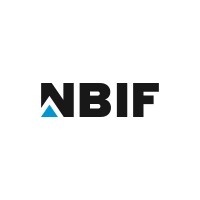
New Brunswick Research and Development Tax Credit
At a glance
- No Condition
- Unspecified
- Professional, scientific and technical services
- New Brunswick
- For-profit business
- All revenue ranges
- All organization sizes
- Startups
Overview
Refundable tax credit of 15% for qualified scientific research and experimental development expenditures in New Brunswick.
Activities funded
Eligible projects or activities include those that aim to achieve technological advancements and advance scientific knowledge through rigorous research and development efforts. These initiatives cover a broad spectrum of eligible research activities that directly support technological and scientific progress.
- Experimental development initiatives aimed at achieving technological advancements in materials, devices, or processes.
- Applied research projects with specific practical applications in various scientific domains.
- Basic research programs designed to expand scientific knowledge without immediate practical application.
- Support work projects that encompass engineering, design, and operations research necessary for SR&ED activities.
- Mathematical analysis and computer programming tasks integral to advancing SR&ED projects.
- Data collection and testing activities that support experimental and applied research efforts.
- Psychological research activities that aid in experimental development and applied research.
Eligibility
Eligibility for this tax credit is determined by specific criteria related to the corporation's activities and expenditures in research and development.
- The applicant must be a New Brunswick corporation.
- The corporation's activities must include experimental development aimed at achieving technological advancement.
- The corporation may engage in applied research to advance scientific knowledge with practical applications.
- The corporation can conduct basic research to advance scientific knowledge without a specific application.
- Support work such as engineering, design, operations research, and other specified activities must directly support eligible SR&ED projects.
- Eligible expenditures must be current and capital SR&ED expenditures, including wages and salaries, materials, equipment, and overhead costs incurred due to SR&ED initiatives.
Who is eligible?
New Brunswick corporations undertaking Scientific Research and Experimental Development (SR&ED) are eligible to apply for this tax credit. Eligible expenditures must be related to experimental development, applied research, basic research, or support work that directly assists these activities. Both current and capital SR&ED expenditures, such as wages, materials, and overhead, are considered for this credit.
Who is not eligible
Some types of companies may not be eligible for this grant. The eligibility criteria may exclude:
- Companies engaged in activities not aligned with the grant's objectives
- Companies with unresolved legal issues or non-compliance with regulations
Eligible expenses
The tax credit covers specific eligible expenditures related to SR&ED activities as defined by the Federal Income Tax Act.
- Experimental development expenditures.
- Applied research expenditures.
- Basic research expenditures.
- Support work expenditures including engineering, design, operations research, mathematical analysis, computer programming, data collection, testing, and psychological research.
- Wages and salaries related to SR&ED initiatives.
- Materials used in SR&ED activities.
- Equipment used for SR&ED purposes.
- Overhead costs associated with SR&ED projects.
- Other expenditures incurred as a result of SR&ED initiatives.
Eligible geographic areas
This grant is available to New Brunswick corporations engaging in research activities. It provides incentives to facilitate advancements in scientific research and development within the province.
- New Brunswick, Canada
Selection criteria
The evaluation and selection of projects for this grant are based on specific criteria with allocated point scores to ensure alignment with the grant’s objectives.
- Innovation and originality of the project proposal may influence its score.
- Feasibility and clarity of the implementation plan are critical for assessment.
- Alignment with the government’s or grant’s strategic goals is evaluated.
- Potential impact on the targeted community or sector is assessed.
- Cost-effectiveness and efficient use of resources are considered.
How to apply
Determine Eligibility
- Review the eligibility criteria for SR&ED expenditures, such as experimental development, applied research, basic research, and support work.
- Ensure the corporation operates within New Brunswick and incurs eligible SR&ED expenditures.
Prepare SR&ED Documentation
- Compile detailed records of all eligible SR&ED activities, including descriptions of projects and technological advancements.
- Gather financial records of eligible expenditures, such as wages, materials, and overhead costs.
Complete T661 Form
- Download and fill out the T661 Scientific Research and Experimental Development (SR&ED) Expenditures Claim form.
- Ensure all sections of the form are accurately completed, including project descriptions and claimed amounts.
File the Income Tax Return
- Incorporate the completed T661 form in your corporation’s income tax return.
- Submit the tax return to the Canada Revenue Agency, ensuring inclusion of all required attachments.
Await CRA Review
- After submission, the CRA will review your SR&ED claim for compliance and accuracy.
- Prepare to provide additional documentation if requested by the CRA during the review process.
Receive Tax Credit
- Once approved, the CRA will issue the refundable R&D tax credit to the corporation.
- Retain documentation of the credit for future reference and auditing purposes.
Additional information
Here are additional relevant details for the Research and Development Tax Credit in New Brunswick:
- The tax credit is fully refundable, meaning it can result in a refund if the credit amount exceeds the corporation's total tax payable.
- Expenditures eligible for the SR&ED tax credit must be consistent with those defined under the Federal Income Tax Act.
- Companies can contact the Canada Revenue Agency (CRA) for assistance and detailed guidelines on the application process.
Contacts
Frequently Asked Questions about the New Brunswick Research and Development Tax Credit Program
What is the New Brunswick Research and Development Tax Credit?
Who is eligible for the New Brunswick Research and Development Tax Credit program?
What expenses are eligible under New Brunswick Research and Development Tax Credit?
Who can I contact for more information about the New Brunswick Research and Development Tax Credit?
Where is the New Brunswick Research and Development Tax Credit available?
Is the New Brunswick Research and Development Tax Credit a grant, loan, or tax credit?
Who are the financial supporters of the New Brunswick Research and Development Tax Credit?
More programs like this

Plug-In NB Charging Rebates for Business
NB Power
NBIF — Emerging Concepts and Technologies Program
New Brunswick Innovation Foundation (NBIF)
New Construction Commercial and Industrial Energy Efficiency Program
NB Power
NBIF Startup Investment Fund
New Brunswick Innovation Foundation (NBIF)
NBIF — Corporate Cleantech Innovation Fund
New Brunswick Innovation Foundation (NBIF)
NBIF Innovation Voucher
New Brunswick Innovation Foundation (NBIF)
Business Rebate Program
NB Power
Social Innovation Research Fund
New Brunswick Innovation Foundation (NBIF)
Emerging Projects Fund
New Brunswick Innovation Foundation (NBIF)